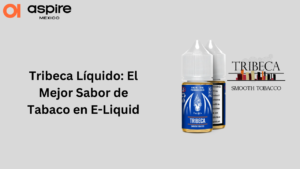Mental health drugs are essential for treating a wide range of mental health issues, such as schizophrenia, bipolar disorder, anxiety, and depression. These drugs can lessen symptoms, help with mood stabilization, and enhance general quality of life. Individuals can choose their mental health treatment with greater knowledge if they are aware of the treatments’ efficacy, possible adverse effects, and mechanism of action. This is a thorough examination of some of the most popular drugs for mental health issues, along with important information on their efficacy.
1. Medications for depression
For depression, anxiety disorders, and a few other mental health issues, antidepressants are frequently recommended. They function by changing the brain’s neurotransmitter levels, which can elevate mood and promote emotional stability. Antidepressants fall into a number of classes, each having a unique mode of action:
SSRIs, or selective serotonin reuptake inhibitors, are among the antidepressants that are most frequently given. They function by raising brain serotonin levels, which are thought to elevate mood. Typical SSRIs consist of:
Sertraline, often known as Zoloft, is useful in treating panic attacks, major depressive disorder, and obsessive-compulsive disorder (OCD). Although the majority of users report feeling happier and less anxious, it may take a few weeks to notice the full benefits.
Prozac (fluoxetine):
Frequently prescribed for panic disorder, bulimia nervosa, and depression. It is well-known for having a long half-life, which allows it to remain in the body for longer and may be advantageous for certain patients.
Effectiveness:
About 60–70% of users claim that SSRIs have improved their symptoms. SSRIs are typically beneficial for many people. Sexual dysfunction, nausea, and sleeplessness are possible side effects.
Serotonin and norepinephrine levels are raised by serotonin-norepinephrine reuptake inhibitors (SNRIs). Typical SNRIs consist of:
Venlafaxine (Effexor XR):
Used to treat generalized anxiety disorder and major depressive disorder. At greater doses, it may raise blood pressure, but it may also lessen anxiety and enhance mood.
Duloxetine, often known as Cymbalta, is useful for treating pain, anxiety, and depression. Although generally well tolerated, it can result in dry mouth and nausea.
Effectiveness:
Many people, especially those who suffer from both depression and chronic pain, may find relief from SNRIs. Nausea, vertigo, and elevated blood pressure are possible side effects.
2. Medication for Anxiety
The purpose of anti-anxiety drugs is to treat anxiety disorder symptoms. These drugs frequently function by altering neurotransmitters that control mood and stress reactions.
Benzodiazepines:
These drugs have a quick-acting anti-anxiety effect, but because they can cause tolerance and dependence, it is usually advised to only use them temporarily. Typical benzodiazepines consist of:
Diazepam (Valium):
Used to treat seizures, anxiety, and spasms in the muscles. Its lengthy half-life, or extended presence in the body, can be advantageous or detrimental based on the demands of the individual.
For anxiety and sleeplessness, lorazepam (Ativan) is frequently prescribed. It is useful for the temporary alleviation of acute anxiety and has a shorter half-life than diazepam.
Effectiveness:
Benzodiazepines are good in relieving anxiety symptoms quickly. However, because of the possibility of dependence, tolerance, and withdrawal symptoms, long-term use is not advised.
In contrast to benzodiazepines, buspirone (Buspar) is used to treat anxiety over the long term without increasing the danger of dependency. It functions by interfering with dopamine and serotonin receptors.
Effectiveness:
Compared to benzodiazepines, buspirone is less prone to produce dependence and is effective for treating generalized anxiety disorder. Headaches and vertigo are frequent adverse effects.
3. Psychiatric Support
Mood stabilizers assist regulate both manic and depressed episodes and are mostly utilized in the treatment of bipolar disorder.
For many years, bipolar disorder has been treated with lithium, a traditional mood stabilizer. It lessens the frequency of manic and depressed episodes and stabilizes mood fluctuations.
Effectiveness:
Many bipolar patients report a marked improvement in their ability to maintain a stable mood after using lithium. To prevent toxicity and keep an eye on lithium levels, routine blood tests are required.
Depakote, or valproic acid, is frequently used to treat epilepsy and bipolar illness. It lessens manic episodes and aids in mood stabilization.
Effectiveness:
Many people with bipolar disorder find that valproic acid is helpful, particularly those who don’t react well to lithium. Weight gain, tremors, and gastrointestinal problems are possible side effects.
Lamotrigine, often known as Lamictal: A bipolar illness mood stabilizer that is very useful in averting depressive episodes.
Lamotrigine is a useful medication for the management of bipolar disorder, particularly for averting depressive periods. Although it usually causes no problems, in rare cases, it can result in a significant skin rash.
4. Drugs that are Antipsychotic
Antipsychotic drugs are used to treat the symptoms of bipolar disorder and schizophrenia, two psychotic diseases. They aid in the management of delusions, hallucinations, and disordered thought patterns.
Atypical Antipsychotics:
Compared to previous antipsychotics, these more recent antipsychotics have a lower risk of extrapyramidal side effects, such as movement problems. Typical atypical antipsychotics consist of:
Risperidone (Risperdal):
Used to treat bipolar disorder, autism-related irritability, and schizophrenia. It has the potential to stabilize mood and lessen psychotic symptoms.
Effectiveness:
Risperidone improves mood and psychotic symptoms in a large number of people. Drowsiness, metabolic abnormalities, and weight gain are possible side effects.
Olanzapine (Zyprexa):
Beneficial in treating bipolar illness and schizophrenia. It is renowned for stabilizing mood and providing quick relief from psychotic symptoms.
Effectiveness:
Olanzapine is a very successful medication for treating psychotic symptoms, but it has serious adverse effects related to metabolism and weight gain.
Seroquel, also known as quetiapine, is used to treat bipolar illness, schizophrenia, and major depressive disorder. It works well for symptoms related to mood and psychosis.
Effectiveness:
Quetiapine works well to treat mood and psychotic symptoms. It may result in drowsiness and weight gain.
5. Inducing Agents
The main purpose of stimulants is to treat ADHD, or attention deficit hyperactivity disorder. To increase focus and attention, they function by raising the amounts of specific neurotransmitters in the brain.
Methylphenidate:
Often given as an ADHD stimulant, Methylphenidate (Ritalin, Concerta). It aids in raising norepinephrine and dopamine levels to enhance focus and lessen hyperactivity.
Effectiveness:
Many ADHD sufferers find that methylphenidate helps them focus better and control their impulsivity. Increased heart rate, appetite loss, and insomnia are possible side effects.
Amphetamine Salts:
Increasing dopamine and norepinephrine levels is how Adderall, an additional potent ADHD stimulant, works.
Effectiveness:
Attention and behavior are improved while using amphetamine salts to treat ADHD symptoms. Increased blood pressure, decreased appetite, and sleeplessness are possible side effects.
In summary
Medication for mental health issues is a vital part of treating many mental health issues. Making educated decisions about their treatment options can be facilitated by having a thorough understanding of their efficacy and possible drawbacks. While mood stabilizers, antipsychotics, antidepressants, stimulants, and anti-anxiety drugs all have advantages and disadvantages of their own, it’s crucial to consult a healthcare professional to choose the best drug and dosage for your individual requirements.
Effective mental health management frequently combines medication, counseling, and lifestyle modifications. You can enhance your general quality of life and attain better mental health results by remaining educated and actively participating in your treatment plan.


